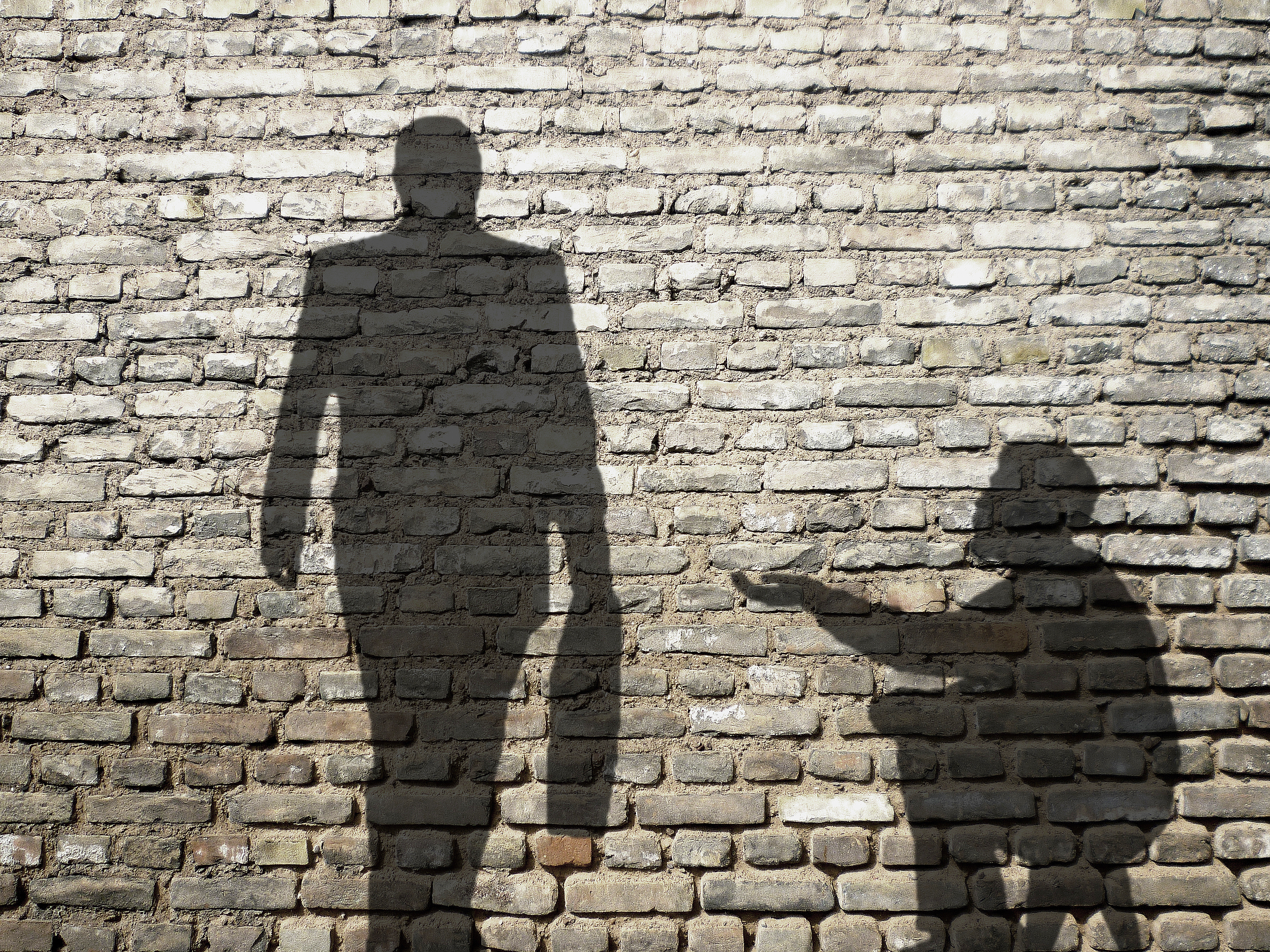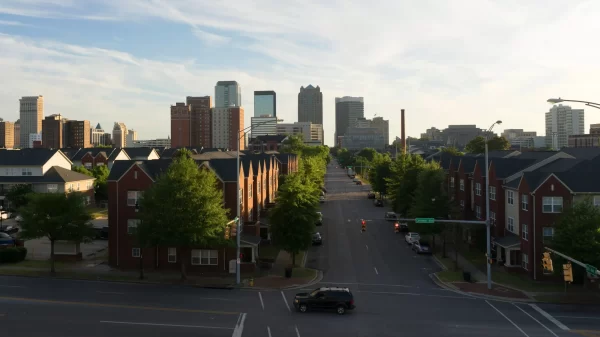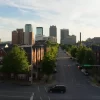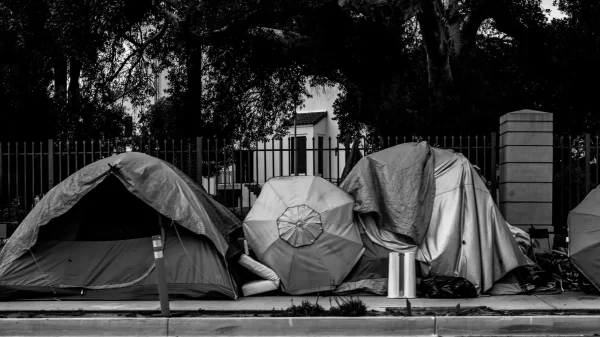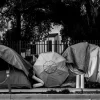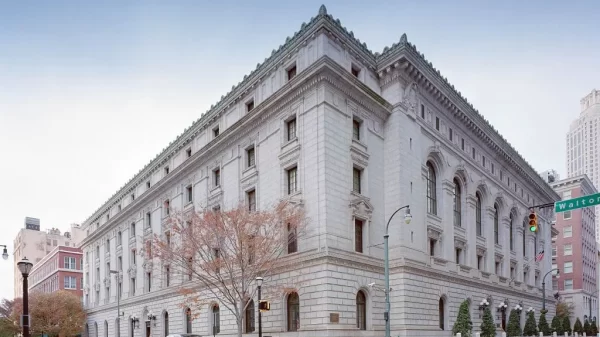|
Getting your Trinity Audio player ready...
|
In Deuteronomy 15:11, God – speaking through the prophet Moses – tells the Israelites to be generous to those less fortunate.
“For there will never cease to be poor in the land,” reads the English Standard Version translation of the Old Testament’s book of laws. “Therefore I command you, ‘You shall open wide your hand to your brother, to the needy and to the poor, in your land.”
It is a moral imperative reverberating throughout the ages, both observing that the impoverished will always be with us and demanding that we do something about it.
It’s doubtful, though, that the something should include imprisoning the very people we should be taking care of — yet that’s what one bill currently before the Alabama Legislature would do.
As introduced by Rep. Reed Ingram, R-Pike Road, HB24 would criminalize the act of loitering on or near a public roadway, and while the language of the statute doesn’t specifically mention panhandling, it’s clear from Ingram’s own remarks that’s what the bill is targeting. “A lot of times, if you ride through Montgomery, on the state highways like Taylor Road, state-owned roads, the bypass and interchanges where the interstates are, you see a lot of people out here panhandling or sleeping beside the road,” Ingram told Montgomery’s WSFA.
Under Ingram’s bill, a law enforcement officer would be obligated to first tell a suspect to leave the road or right of way before an arrest, with the initial conviction resulting in up to 30 days in a county jail and subsequent offenses in the same jurisdiction earning up to three months incarceration.
The representative’s proposed law comes after a Montgomery city ordinance banning panhandling and a state law doing the same were both found to be unconstitutional — and Ingram’s bill also seems especially callous when considering it was only a few years ago that the Mobile Police Department was nationally shamed for a Christmastime photograph of officers posing in front of a “panhandling quilt” made from cardboard signs.
The state certainly has every right to exercise its inherent police powers in the pursuit of public safety, and on its face, a law preventing loitering (defined by Black’s Law Dictionary as “to be slow in movement” or “to stand around”) on or near a roadway seems like a reasonable measure to keep people safe — who could be against a law preventing people from standing or wandering in the street aimlessly?
Again, though, Ingram’s own comments make it clear this law is not about safety.
“When you come off of the exit and you see people standing here knocking on your door,” Ingram said, “panhandling is just not a good image.”
And that’s where this issue turns from one of safety to one of free speech and the First Amendment.
The simple act of asking someone for money, be it on the highway or on the sidewalk or anywhere else in this great and plentiful (for some) country of ours, is a speech act protected by the Constitution. “While some communities might wish all solicitors, beggars and advocates of various causes be vanished from the streets,” wrote the Seventh Circuit Court of Appeals in a 2000 case, “the First Amendment guarantees their right to be there, deliver their pitch and ask for support.” Furthermore, it’s protected expression that doesn’t even require a verbal request, as the Second Circuit noted in a 1992 case: “Even without particularized speech…the presence of an unkempt and disheveled person holding out his or her hand or a cup to receive a donation itself conveys a message of need for support and assistance.”
Rep. Ingram might think it’s “not a good image,” and it might reasonably make people uncomfortable since being confronted with suffering does tend to do that. But under our system of constitutional jurisprudence, the state can’t simply declare unsightly or unseemly speech outside the boundaries of the law under the guise of safety and security measures unless there’s a material harm and the law in question directly addresses that harm in a targeted and substantive way without swallowing more speech than is necessary in the process. This demanding examination — the Supreme Court’s “strict scrutiny” test — requires the government to meet a high burden if it seeks to attack the content of core speech such as art, political advocacy and, yes, even soliciting passersby for whatever money they can spare.
In recent years, federal circuit courts using this strict scrutiny analysis have not been kind to laws targeting panhandling. In 2015, the Fourth Circuit found that a Henrico County, Virginia law banning leafletting, monetary solicitation and the sale of merchandise and services to drivers from roads, medians and shoulders was too broad and thus failed strict scrutiny analysis in part because it applied to “all county roads, regardless of location or traffic volume, and includes all medians, even wide medians and those beside traffic lights and stop signs.”
The Eight Circuit in 2018 concluded that an Arkansas state loitering law targeting panhandling was unconstitutional because it included only begging and not other activities or loitering generally, a failure to target other dangerous (according to the state) activities that triggered fatal defect in strict scrutiny analysis known as underinclusivity.
In 2020, the 10th Circuit invalidated an Oklahoma City ordinance that banned standing, sitting or staying on any median less than 30 feet wide or one less than 200 feet from an intersection owing in some measure to a lack of evidence of any pedestrians or vehicular passengers ever being injured as a result of panhandling or other similar activities; the following year, the same court found a similar Albuquerque, New Mexico ordinance unconstitutional after the city relied on both anecdotal evidence and statistics which had little-to-no bearing on the issue to answer the question of whether anyone was actually at risk from panhandling.
Yet courts — even skeptical ones — have not universally struck down these sorts of attempts to criminalize panhandling. In 2019, the 10th Circuit (the same court that would later find similar laws unconstitutional in 2020 and 2021) concluded that a Sandy City, Utah ordinance prohibiting standing or sitting in any unpaved median or a median less than 36 inches wide was constitutional; the law, the court reasoned, met the burden of strict scrutiny because it was narrowly tailored (in that it targeted only medians that were unsafe for occupation) and it left open ample opportunities for speech, such as other medians and intersections not covered by the ordinance. However, a critical reading of that case would note the city’s reliance on a police captain and city prosecutor as the arbiters of street safety when determining what is and what is not a safe median to occupy — the same sort of ill-supported justification that has resulted in other laws getting tossed.
In short, most of the recent cases suggest that Rep. Ingram’s law will not pass constitutional muster — a law banning all loitering near roads and highways is too broad, and it’s unlikely, perhaps impossible, that our state’s less than intrepid lawmakers have done the necessary homework to show that this is an actual safety issue rather than one of image and discomfort.
This proposed law is unconstitutional. But moreover, it’s cruel. Rep. Ingram may point out that perhaps police officials will take panhandlers to a shelter rather than to jail, but this law is nothing more than an attempt to criminalize abject poverty in order to ease the discomfort of some who’d prefer to ignore the suffering of others.
“Open your hand wide to your brother…when it’s convenient. Otherwise, put them in jail.”
I don’t think we can find that in any Bible.
It shouldn’t be in the Alabama criminal code either.






































